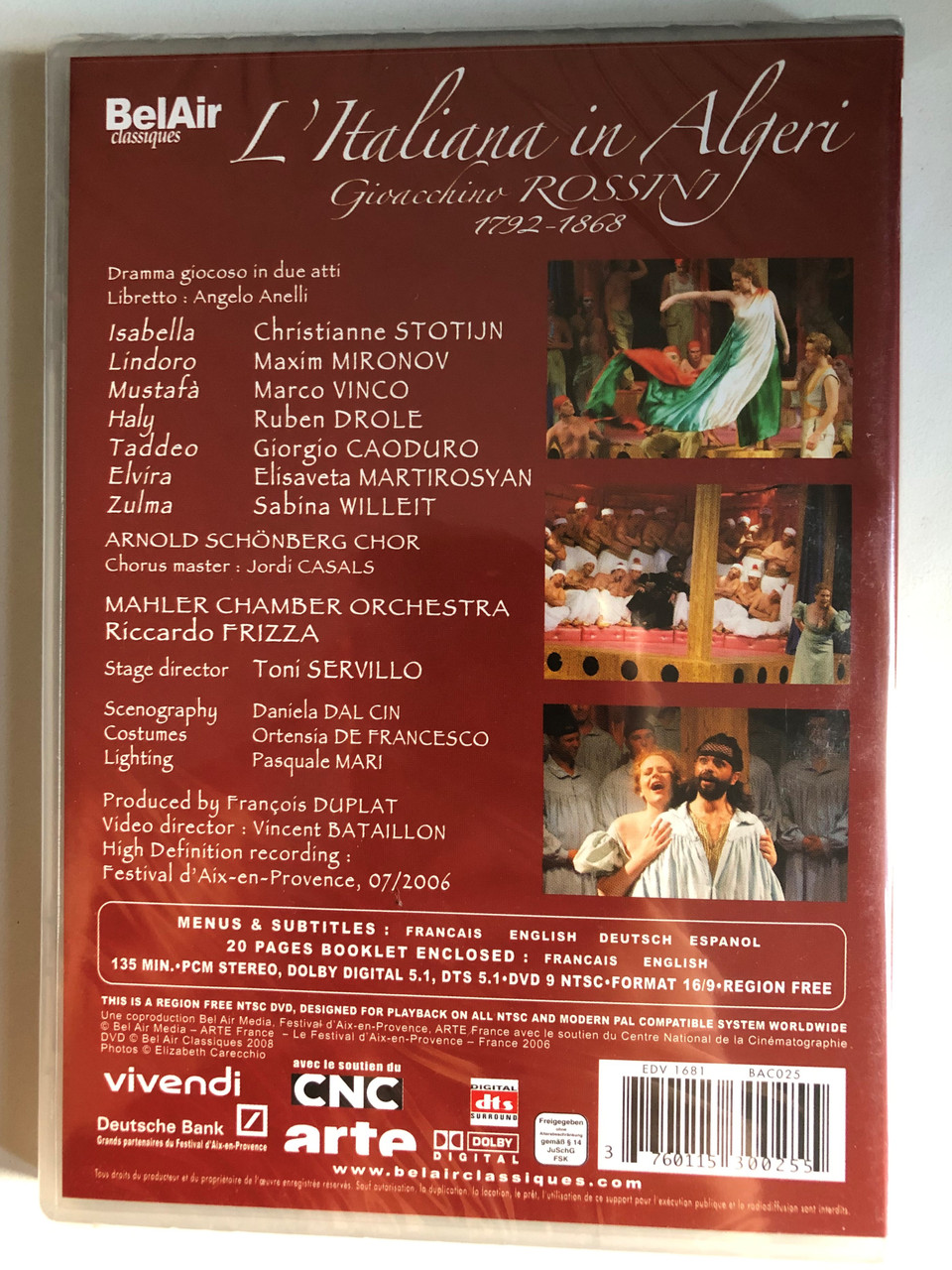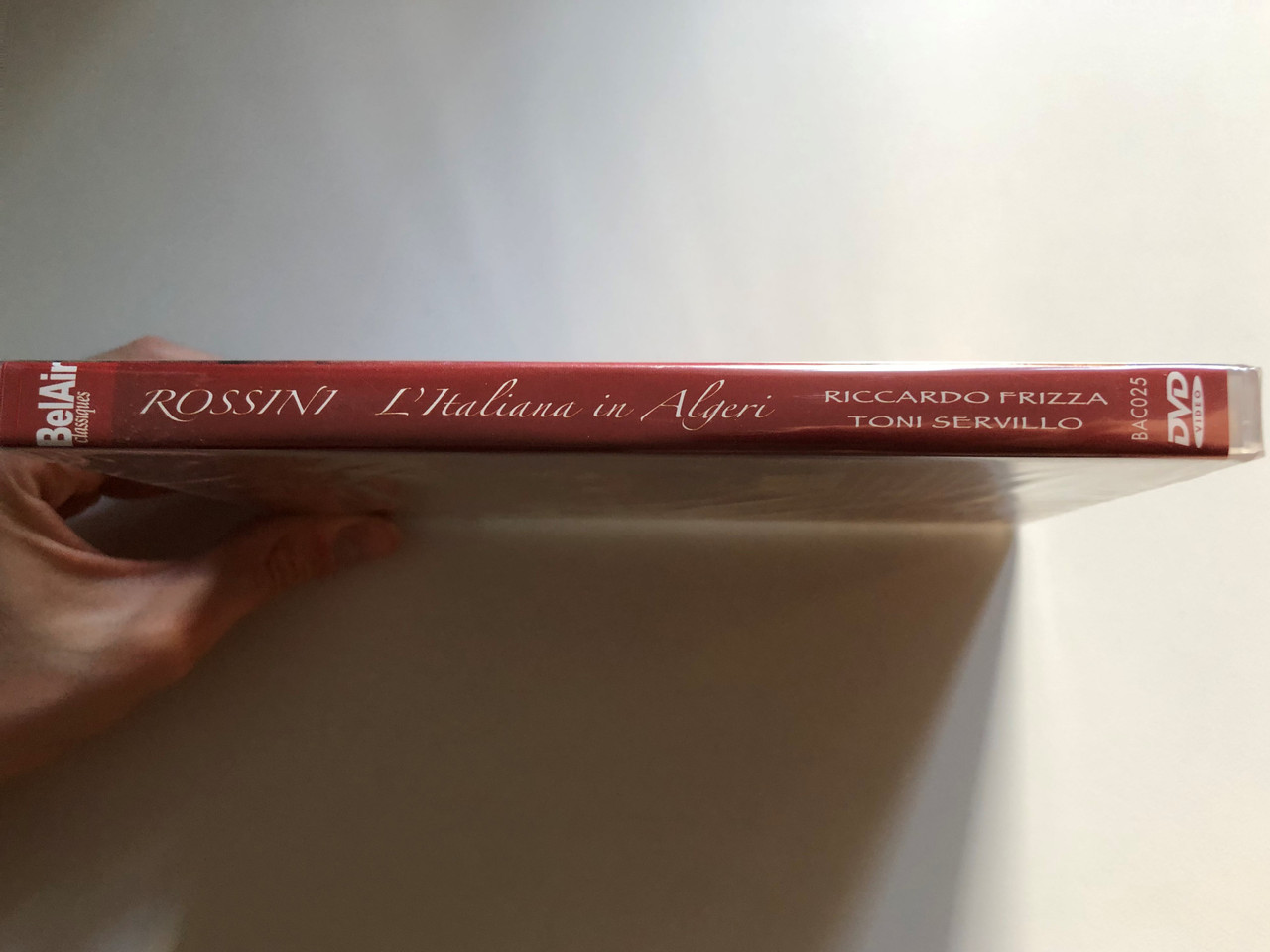Description
Rossini: L'Italiana in Algeri / Playful drama in two acts Libretto: Angelo Rings / Festival d'Aix-en-Provence / MAHLER CHAMBER ORCHESTRA Con ductor: Riccardo FRIZZA / ARNOLD SCHÖNBERG CHOR Chorus master: Jordi CASALS / DVD
Format: NTSC
Run time: 135 Minutes
UPC: 3760115300255
- Aspect Ratio : 1.78:1
- Is Discontinued By Manufacturer : Yes
- MPAA rating : NR (Not Rated)
- Product Dimensions : 7.5 x 5.5 x 0.53 inches; 4 Ounces
- Director : Toni Servillo, Vincent Bataillon
- Media Format : Multiple Formats, AC-3, Color, Dolby, NTSC, Widescreen, Classical
- Run time : 2 hours and 15 minutes
- Release date : July 8, 2008
- Actors : Christianne Stotjin, Maxim Mironov, Marco Vinco, Ruben Drole, Riccardo Fraizza
- Subtitles: : English, German, Spanish, French
- Producers : Festival d'Aix-en-Provence
- Language : Italian (Dolby Digital 5.1), Italian (PCM Stereo), Italian (DTS 5.1)
- Studio : Bel Air Classiques
- Writers : Gioachino Rossini, Angelo Anelli
- Number of discs : 1
L'italiana in Algeri (Italian pronunciation: [litaˈljaːna in alˈdʒɛːri]; The Italian Girl in Algiers) is an operatic dramma giocoso in two acts by Gioachino Rossini to an Italian libretto by Angelo Anelli, based on his earlier text set by Luigi Mosca. It premiered at the Teatro San Benedetto in Venice on 22 May 1813. The music is characteristic of Rossini's style, remarkable for its fusion of sustained, manic energy with elegant, pristine melodies.
Rossini wrote L'italiana in Algeri when he was 21. Rossini stated that he composed the opera in 18 days, though other sources claim that it took him 27 days. Rossini entrusted the composition of the recitatives as well as the aria "Le femmine d'Italia" to an unknown collaborator.[1] The opera is notable for Rossini's mixing of opera seria style with opera buffa. The overture is widely recorded and performed today, known for its distinct opening of slow, quiet pizzicato basses, leading to a sudden loud burst of sound from the full orchestra. This "surprise" reflects Rossini's early admiration for Joseph Haydn, whose Symphony No. 94 in G major, "The Surprise Symphony", is so named for the same shocking and semi-comic effect.


























